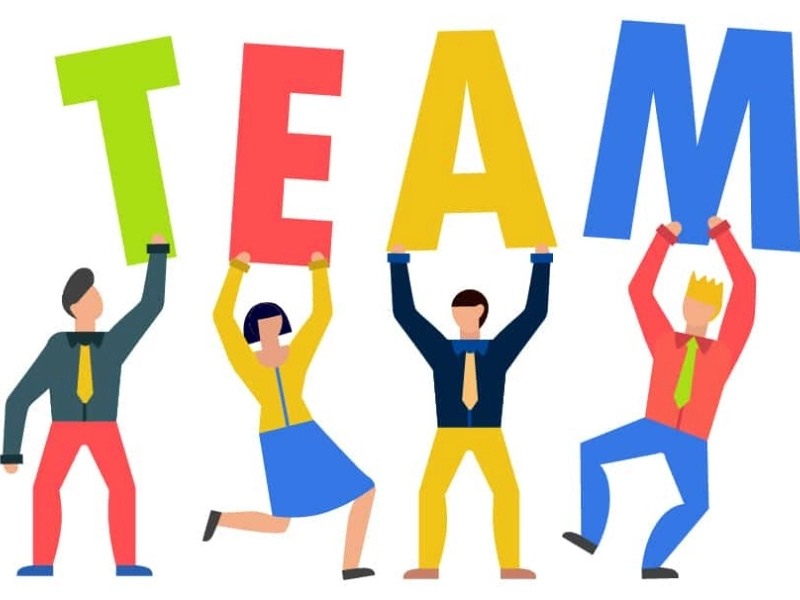Strong bonds at work can make all the difference, whether you're teasing a silly coworker or sharing your vacation plans with your savvy supervisor. Who wants to work in a poisonous environment, after all?
Consistent communication and teamwork are the most effective ways to develop relationships in the workplace. However, when working in remote and hybrid contexts, this might become challenging.
Be open with your communication.

Developing relationships at work requires open communication. This entails giving teammates feedback and exchanging strategic views.
For instance, be prepared to listen and respond when a team member requests input on a task or procedure. Avoid the temptation to quickly brush off the advice, because doing so will make your team members less likely to be honest with you in the future.
Make sure that team members are at ease speaking up in meetings as well. This can be accomplished by setting up one-on-one meetings with your team to talk about subjects unrelated to work or by planning regular office Q&A sessions (if you work remotely). Positive working relationships can contribute to greater job satisfaction. When workers don't feel encouraged at work, they may disengage and look for other employment opportunities.
Pay attention to one another.

Listening to each other is a great strategy to build stronger relationships at work. Improved learning and fewer misconceptions can result from attentive listening. Because workers don't have to repeat themselves, it also saves time and money.
Be mindful of what the team member is saying and give thoughtful, engaged feedback. Do not ask "yes" or "no" questions, as these may result in unsatisfactory responses. Ask open-ended questions instead, which will entice the speaker to elaborate.
Building strong bonds with team members is essential for managers to comprehend their requirements and promote cooperation. Setting up daily video catch-up sessions will give your team a chance to talk about their work and voice any worries they may have. Additionally, it will help you stop issues in their tracks before they get worse.
Honour each other's viewpoints.

Building relationships with coworkers is crucial to making sure that everyone feels appreciated, understood, and supported. Establishing trust and promoting communication among their teams, colleagues, and upper management are the duties of managers.
Respecting others can be achieved by first learning to be tolerant of others who hold different beliefs. When someone holds a belief that you disagree with, it is easy to become defensive, but it is also possible to consider their perspective and come to a mutually agreeable conclusion without being antagonistic.
Try to attend meetings and actively participate when working remotely so that your team can get to know you better. Steer clear of office politics and gossip; these things will only divert attention from worthwhile conversations. If things get heated, be prepared to end the discussion and accept that you two can't agree.
Be trustworthy

Your teammates will see that you take your work seriously if you are dependable and on time. If you are unable to keep your word and arrive on time, you cannot be trusted with significant jobs.
Moreover, trustworthy team members are truthful with one another and honour their commitments. They will stop at nothing to achieve their immediate and long-term objectives.
They are open to sharing information with other team members, which helps to maintain communication and avoid any unpleasant surprises later on. Instead of engaging in office politics or gossip, they confront their bosses about problems. Additionally, rather than vying to impress the boss, they support other team members as needed. This demonstrates a great deal of selflessness and fosters trust. It's difficult to find someone with this mindset, but they make great teammates.
Request assistance

Asking for help can be difficult for many people because they fear being viewed as weak or unable. However, the truth is that everyone occasionally needs assistance. Therefore, don't be reluctant to ask your colleagues for direction or advice.
According to the study, people who ask for assistance are really viewed as more capable than those who don't. Furthermore, you may even feel better about yourself if you ask for assistance.
Make sure to express gratitude to your colleague for their assistance and, if you can, offer to repay them. Additionally, make an effort to schedule one-on-one or in-person meetings with team members to strengthen bonds and promote cooperation. By doing this, we will ensure that everyone is contributing fairly and that projects are being managed well.















